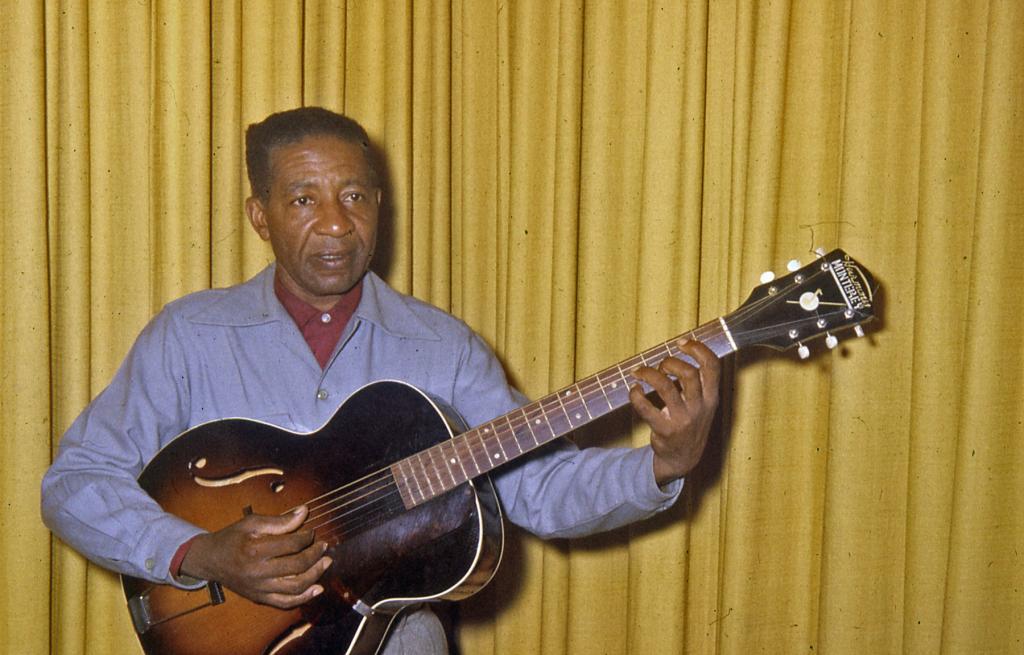This is the latest from The Bluesmobile’s C.C. Rider, who spends her life venerating the founding fathers of the blues. She’s walked the crooked highways of this singing country to resurrect the voices of the past. With the dirt of the Delta on her hands, she sleeps in the shadow of the giants on whose shoulders popular music now stands.
Lonnie Johnson
(February 8, 1899 – June 16, 1970)
Growin’ up in New Orleans, Lonnie Johnson learned to play music alongside his brothers and sisters. His dad, a violin player, brought up the family to play together. But after he lost all his kin to the Spanish Flu, Lonnie was on his own. So he moved to St. Louis. Became a riverboat performer. Played music for popular comedy acts.
In 1925 Lonnie Johnson entered a talent contest hosted by Okeh records. He’d never even really sung before—but he won. Cause of that unexpected win, the jazz-minded Johnson was branded a traditional blues player. He didn’t like that label, but the Okeh contest landed him work as a session musician.
And it was a 1927 Okeh Session that really changed the game. For historians anyway. See, on a track called “6/88 Glide,” Johnson turned to his jazz background and started to improvise on his guitar. According to many, that was the first real guitar solo on record.
Lonnie Johnson went on to play masterfully on cuts by Louis Armstrong and Duke Ellington. Recorded vocal numbers with blues queen Victoria Spivey. And guitar duets like this one with Eddie Lang. What you heard there’s some of the first one-on-one collaborations between a black and a white musician. Incredible.
Here’s a beautiful track. Lonnie Johnson and “Feeling Low Down.”



